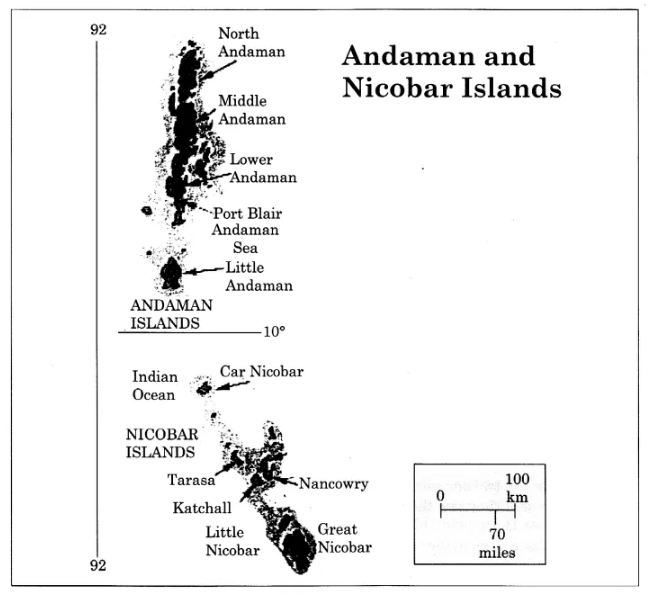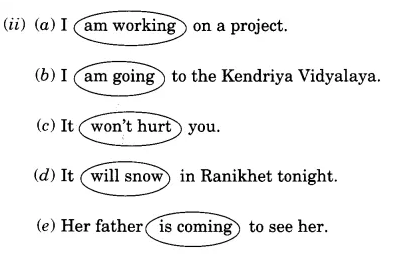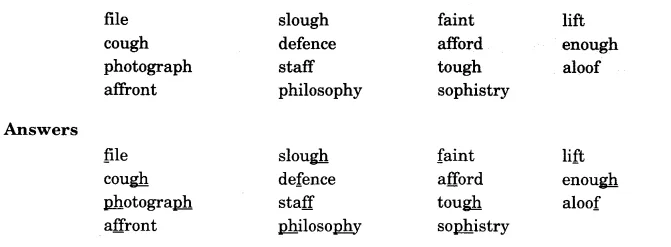NCERT Solutions for Class 8 English Honeydew Poem Chapter 3 Macavity : The Mystery Cat are part of NCERT Solutions for Class 8 English. Here we have given NCERT Solutions for Class 8 English Honeydew Poem Chapter 3 Macavity : The Mystery Cat.
| Board | CBSE |
| Textbook | NCERT |
| Class | Class 8 |
| Subject | English Honeydew (Poem) |
| Chapter | Chapter 3 |
| Chapter Name | Macavity : The Mystery Cat |
| Category | NCERT Solutions |
NCERT Solutions for Class 8 English Honeydew (Poem) Macavity : The Mystery Cat
STANZAS FOR COMPREHENSION
I. Macavity’s a Mystery Cat : he’s called the Hidden
Paw–
For he’s the master criminal who can defy the Law.
He’s the bafflement of Scotland Yard, the Flying Squad’s
despair :
For when they reach the scene of crime—Macavity’s
not there! (Page 50)

हिंदी अनुवाद-मैकाविटी एक रहस्यपूर्ण बिल्ला है। उसे ‘छिपा पंजा’ का दूसरा नाम भी (उसकी रहस्यमयता के कारण) मिला है। वह बड़ा कुशल अपराधी है जो बिना किसी डर के कानून तोड़ता है। उसके काम स्काटलैंड की पुलिस को घबरा देते हैं। उड़न दस्ते ने व्यर्थ ही उसे पकड़ने का प्रयत्न किया है। जब तक वे अपराध-स्थल पर पहुँचते हैं, मैकाविटी गायब हो जाता है।
Paraphrase. Macavity is a mysterious cat. His mystery has given him another name also—’Hidden Paw’. He is an expert criminal who can disobey the law with impunity. His actions puzzle the police of Scotland Yard. The Flying Squad has in vain tried to chase him. By the time they reach the scene of crime, Macavity disappears.
Multiple Choice Questions
1. Macavity is a mystery cat because
(a) he has hidden powers
(b) no-one understands his ways
(c) Scotland Yard is baffled by him
(d) he has a hidden paw.
2. Macavity is never punished because
(a) he disappears into thin air
(b) he has a hidden paw
(c) he is never found at the scene of crime
(d) Scotland Yard does not understand him.
3. Macavity breaks
(a) the pots
(b) the wall
(c) a fakir’s honour
(d) human laws.
4. The adjective from the word mystery is
(a) mysterious
(b) mystic
(c) mystify
(d) mysticism.
Answers
1. (b) no-one understands his ways
2. (c) he is never found at the scene of crime
3. (d) human laws
4. (a) mysterious
II. Macavity, Macavity, there’s no one like
Macavity,
He’s broken every human law, he breaks
the law of gravity.
His powers of levitation would make a fakir
stare,
And when you reach the scene of crime
-Macavity’s not there! (Page 50)

हिंदी अनुवाद-मैकाविटी, मैकाविटी ; मैकाविटी जैसा कोई नहीं। उसने सभी मानवीय कानून तोड़ डाले हैं। वह गुरुत्वाकर्षण का नियम तोड़ता है। फकीरों के पास रहस्यपूर्ण शक्तियाँ होती हैं। बिना सहारे हवा में उसके उड़ने की शक्ति किसी फकीर को भी चकित कर देगी और जब तुम अपराध के घटनास्थल पर पहुँचते हो तो मैकाविटी वहाँ नहीं होता है।
Paraphrase. There is no one like Macavity. He has broken all man-made laws. He has broken even the law of gravity. Fakirs have mysterious powers. His floating in the air without support would astonish even a fakir. Above all when you reach the scene of crime, Macavity is nowhere to be seen.
Questions
1. Who is Macavity ?
2. What does Macavity do ?
3. Do people like Macavity ?
4. What does the word ‘levitation’ mean?
Answers
1. Macavity is a cat.
2. Macavity does not follow any human law. He is a criminal.
3. No, the people do not like Macavity.
4. The word ‘levitation’ means “floating in the air’.
III. You may seek him in the basement, you
may look up in the air
But I tell you once and once again,
Macavity’s not there!
Macavity’s a ginger cat, he’s very tall and
thin ;
You would know him if you saw him, for
his eyes are sunken in. (Page 50)

हिंदी अनुवाद -आप मैकाविटी को शायद तहखाने या हवा में तलाश करने का प्रयत्न करें पर वह व्यर्थ होगा। इस प्रकार उसे तलाश करने वाला उसे कहीं नहीं खोज पाएगा-न धरती के नीचे, न ऊपर। मैकाविटी अदरक के रंग वाला बिल्ला है। वह लंबा और पतला है। अगर आप उसे मिलेंगे तो उसकी धंसी हुई आँखों से उसे आसानी से पहचान लोगे।
Paraphrase. You may try to find Macavity in the basement or in the air but in vain. Thus, one who looks for him finds him nowhere—under or over the earth. Macavity is a ginger coloured cat. He is tall and thin. If you meet him, you will easily recognise him because of his deep-set eyes.
Multiple Choice Questions
1. The great difficulty is that Macavity
(a) is easily found
(b) is very difficult to be found
(c) is a ginger cat
(d) is tall and thin.
2. Ginger in the passage is
(a) a thing that Macavity likes
(b) something which resembles Macavity
(c) the colour of Macavity
(d) the breed of Macavity.
3. The poet’s name is
(a) R.N. Tagore
(b) Zulfikar Ghose
(c) William Blake
(d) T.S. Eliot.
4. The word ‘sunken’ in the passage means
(a) deep-set
(b) drowned
(c) floating
(d) attractive.
Answers
1. (b) is very difficult to be found
2. (c) the colour of Macavity
3. (d) T.S. Eliot
4. (a) deep-set
IV. His brow is deeply lined with thought, his
head is highly domed ;
His coat is dusty from neglect, his whiskers are uncombed.
He sways his head from side to side, with movements
like a snake;
And when you think he’s half asleep, he’s always wide awake. (Pages 50–51)

हिंदी अनुवाद -मैकाविटी का माथा झुर्रियों से भरा है। उससे ऐसा लगता है कि हर समय वह गहरे विचारों में डूबा हुआ है। उसका सिर उसके शरीर पर किसी इमारत के ऊपर लगे गुंबज की तरह ऊँचा है। उसके शरीर की देखभाल ठीक से नहीं की जाती है। अतः उसकी खाल धूल-भरी और मूंछे बिखरी हुई हैं। साँप की तरह वह अपना सिर इधर-उधर हिलाता रहता है। वह सदा सतर्क रहता है। जब वह आपको उनींदा हुआ दिखाई दे तब भी वह पूरी तरह सतर्क होता है।
Paraphrase. Macavity’s forehead is wrinkled. From that he appears lost in deep thinking all the time. His head sits high on his body like the dome on a building. His body is not well looked after. So the skin is dusty and the whiskers are uncombed. He moves his head from side to side like a snake. He is always alert. When you think he is dozing, he is wide awake.
Questions
1. What is the passage about ?
2. What is he doing with his deeply lined brow ?
3. What does the word ‘coat refers to in the passage ?
4. Find word in the passage which is the opposite of ‘heed’.
Answers
1. The passage is about a cat named ‘Macavity.
2. He is thinking of his new criminal act.
3. The word ‘coat refers to the skin.
4. ignore.
V. Macavity, Macavity, there’s no one like Macavity,
For he’s a fiend in feline shape, a monster of depravity.
You may meet him in a by-street, you may see him in
the square
But when a crime’s discovered, then Macavity’s not there ! (Page 51)

Paraphrase. Macavity is special. There is no parallel to him. He is a devil in the body of a cat. He is morally corrupt like a monster ! Ordinarily, you may find him anywhere on your way. He may be there in a by-lane or in a square. However, when, his crime is discovered and people look for him, he is nowhere to be found.
Multiple Choice Questions
1. The fiend in feline shape is
(a) Macavity
(b) a dog
(c) a human being
(d) the poet.
2. It is difficult to find Macavity when
(a) he lives in the square
(b) he lives in a by-street
(c) he is a fiend
(d) he commits a crime.
3. Macavity is compared to
(a) man
(b) a dog
(c) a cat
(d) a devil.
4. The word depravity means
(a) deep thought
(b) moral corruption
(c) bad actions
(d) mystery.
Answers
1. (a) Macavity
2. (d) he commits a crime
3. (d) a devil
4. (b) moral corruption
TEXTUAL QUESTIONS
WORKING WITH THE POEM (Page 51)
Question. 1.
Read the first stanza and think.
(i) Is Macavity a cat really ?
(ii) If not, who can Macavity be ?
Answer:
(i) Macavity is a cat.
(ii) If not, Macavity can be a thief.
Question. 2.
Complete the following sentences.
(i) A master criminal is one who ___
(ii) The Scotland Yard is baffled because ___
(iii) ____ because Macavity moves much faster than them.
Answer:
(i) A master criminal is one who is never caught.
(ii) The Scotland Yard is baffled because with all its might, it is unable to lay its hand upon Macavity.
(iii) Flying Squad is not able to get Macavity because Macavity moves much faster than the Flying Squad.
Question . 3.
“A cat, I am sure, could walk on a cloud without coming through”. (Jules Verne)
Which law is Macavity breaking in the light of the comment above ?
Answer:
The law of gravitation.
Question. 4.
Read stanza 3, and then, describe Macavity in two or three sentences of your own.
Answer:
Macavity is a ginger coloured, very tall and thin cat with sunken eyes and high head. He has a wrinkled forehead, dusty coat and uncombed whiskers. He is always alert and moves his head from side to side like a snake.
Question . 5.
Say ‘False’ or ‘True’ for each of the following statements.
(i) Macavity is not an ordinary cat.
(ii) Macavity cannot do what a fakir can easily do.
(in) Macavity has supernatural powers.
(iv) Macavity is well-dressed, smart and bright.
(v) Macavity is a spy, a trickster and a criminal, all rolled in one.
Answer:
(i) True
(ii) False
(iii) False
(iv) False
(v) True.
Question. 6.
Having read the poem, try to guess whether the poet is fond of cats. If so, why does he call Macavity a fiend and monster ?
Answer:
The poet is fond of the cats. That is why, he describes a big cat in such detail. However, for the rats the cat is certainly a fiend and a monster. So the poet gives him those adjectives as well.
Question. 7.
Has the poet used exaggeration for special effect ? Find a few examples of it and read those lines aloud.
Answer:
Yes. The following lines show that:
“He’s the bafflement of Scotland Yard, the
Flying Squad’s despair.”
“His powers of levitation would make a
fakir stare.”
“For he’s a fiend in feline shape, a monster
of depravity.”
We hope the NCERT Solutions for Class 8 English Honeydew Poem Chapter 3 Macavity : The Mystery Cat help you. If you have any query regarding NCERT Solutions for Class 8 English Honeydew Poem Chapter 3 Macavity : The Mystery Cat, drop a comment below and we will get back to you at the earliest.








































